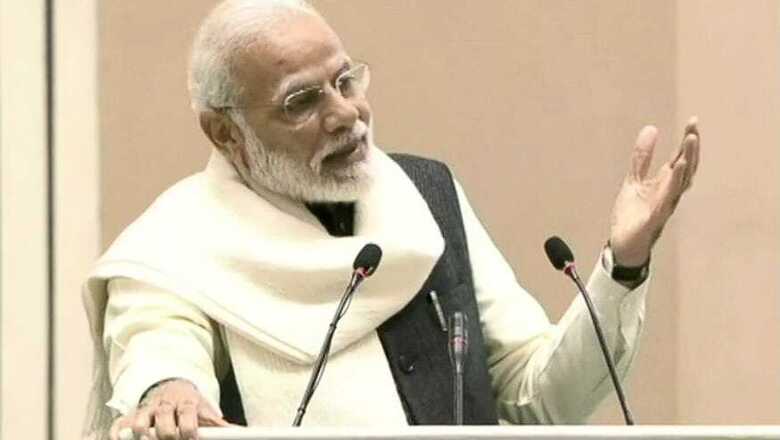PM Modi's Business-friendly Reforms Stopped Halfway; Investors Avoiding India, Says French Economist

views
New Delhi: Prime Minister Narendra Modi has taken many steps to support Indian entrepreneurs' dynamism but the reforms suddenly stopped halfway due to a shift in focus to political matters, which is negatively impacting the economy, according to eminent French economist Guy Sorman.
Currently, he said that both local and foreign investors are frightened and do not want to invest in India.
Sorman, who has authored many books, including 'Economics Does Not Lie: A Defence of the Free Market in a time of Crisis', further said presently the temptation to turn to protectionism is strong in the country.
"Modi initially did support the dynamism of the Indian entrepreneurs by creating a national market, fighting what is left of the Licence Raj, containing corruption, promoting Make in India.
"But he suddenly stopped halfway, forgetting his own economic agenda and focusing on political matters which suddenly gave India and his government a bad name," he told PTI. Sorman, however, steered clear of the domestic political situation.
"I do not judge the good or bad reasons to play with Hindutva and citizenship laws, none of my business in a complicated environment.
"I only want to stress the negative impact on the economy at the very moment when the global economy is slowing down," he added.
E-mail queries sent to the Prime Minister's Office (PMO) seeking comments did not elicit any response.
Noting that all economists agree there is a strong link between investment and trust in institutions, Sorman said, "This trust is currently eroded at the national level, which is very sad and could have been avoided."
The economist also argued that given the importance of the informal sector and the poor quality of the statistics, the GDP measurement in India is totally unreliable.
India, which till recently was hailed as the world's fastest-growing major economy, has seen growth rate decline to a six-year low of 4.5 per cent in the September quarter of 2019-20.
This has largely been attributed to the slowdown in investment that has now broadened into consumption, driven by financial stress among rural households and weak job creation.












Comments
0 comment